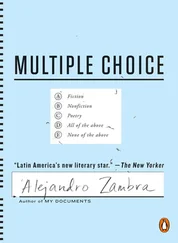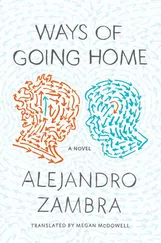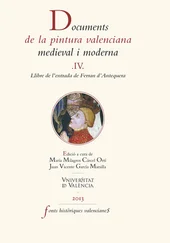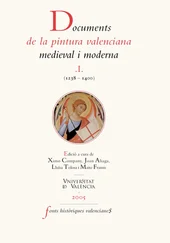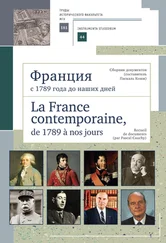To Martín, the existence of that door is fantastic — he’s only ever seen one like it in Tom and Jerry cartoons. He almost asks how they got it, but then he thinks that maybe Santiago is full of pet doors and he’s just never noticed before.
“Sorry,” he says at the wrong time. “What did you say about our parents?”
“What?”
“You said something about ‘our parents,’ I think?”
“Oh, that this door is like when our parents gave us the keys to the house.”
The laughter lasts for two seconds. Martín goes out to smoke and sees an empty area in the yard: two and a half meters of disheveled grass where there should be a few plants and maybe a bush, but there’s nothing. He flicks his ashes furtively onto the grass, puts out the cigarette, and wastes an entire minute thinking about where to throw it: in the end he leaves it under a yellowed weed. He looks at the house from the threshold, thinks that it isn’t so big, that it’s manageable, though it seems full of nuance. He tentatively observes the shelves, the electric piano, and a large hourglass on the end table. He remembers that when he was a child he liked hourglasses, and he turns it over—
“It lasts twelve minutes,” says the little girl, who then, from the top step where she is trying to hold on to the cat, asks him if he’s Martín.
“Yes.”
And if he wants to play chess.
“Okay.”
The cat wriggles out of the girl’s grasp. It’s an uneven gray color, with short, dense fur, a thin body, and fangs that protrude slightly. The little girl goes up and down the stairs several times. And the cat, Mississippi, seems docile. He goes up to Martín, who wants to pet him but hesitates: he’s not so familiar with cats, has never lived with one before.
Sofía comes back, she’s in her PJs now and she walks clumsily in her big slippers from Chiloé. Consuelo asks her to not bother them and to go to her room, but the girl is carrying a heavy box, or a box that’s heavy for her, and she sets up the chessboard on the living-room table. She is seven years old, and she has just learned how to move the pieces, as well as the game’s mannerisms or affectations: she looks cute with her brow furrowed, her round face in her hands. She and Martín start to play, but after five minutes it’s clear that they’re getting bored, him more so than her. Then he proposes to Sofí that they play at losing, and at first she doesn’t understand, but then she explodes in sweet, mocking laughter — the one who loses wins, the goal is to give up first, to leave Don Quixote and Dulcinea unprotected, because it’s a Cervantes chess set, with windmills instead of rooks, and courageous Sancho Panzas as pawns.
How idiotic, thinks Martín. A literary chess set.
The pieces on the board look tarnished, tasteless, and although he’s not one to form quick impressions, the whole house now makes him a little anxious and annoyed, but not because of anything he sees: the placement of each object surely answers to some obscure theory of interior design, but an imbalance persists nonetheless, a secret anomaly. It’s as if the things don’t want to be where they are, thinks Martín, who is nevertheless grateful for the chance to spend some time in this luminous house, so different from the small, shadowy rooms he tends to live in.
Consuelo takes the girl upstairs and sings her to sleep. Though he listens from afar, Martín feels that he shouldn’t be eavesdropping, that he is an intruder. Bruno offers him some ravioli, which they eat in silence, with a phony masculine voracity. Something like, Well, there are no women around — let’s not use napkins. After the coffee, Bruno pours a couple of vodkas on the rocks, but Martín opts to keep downing the wine.
“What’s the name of the city where you’re going to live?” asks Martín, to have something to say.
“Saint-Étienne.”
“Where we played?”
“Who’s we?”
“The Chilean soccer team, France, ’98.”
“I don’t know. It’s an industrial city, a little run-down. I’m going to teach classes on Latin America.”
“And where is it?”
“Saint-Étienne or Latin America?”
The joke is so easy, so rote, but it works. Almost without trying, they draw out the after-dinner conversation, as if discovering some belated affinity. Upstairs the little girl sleeps, and they can also hear what might be Consuelo breathing or snoring slightly. Martín discovers that he’s been thinking about her the whole time he’s been in the house, from the moment he saw her in the doorway.
“You’re going to be here four months,” Bruno tells him. “Make use of that time to have a go with one of the neighbors.”
I’d much rather have a go with your wife, thinks Martín, and he thinks it so forcefully he’s afraid he has said it out loud.
“Enjoy it, cousin,” Bruno goes on affectionately, slightly drunk, but they aren’t cousins. Their fathers were, though: Martín’s has just died, and it was at the wake that they saw each other again for the first time in years. To treat one another like family now makes sense, it’s perhaps the only way to build a hasty sense of trust. The idea had originally been to rent out the house to someone who wouldn’t change it too much. But they couldn’t find anyone suitable. After a lot of finagling, some of it pretty desperate, Martín was the most reliable person Bruno could find to housesit. They’ve seen each other very little over the course of their lives, but maybe they were friends at one point, when they were still children and were compelled to play together on some Sunday afternoon.
Bruno lays out for him again what they’ve already talked about over the phone. He gives him the keys, they test the locks, he explains the doors’ quirks. And again he lists the advantages of being there, although now he doesn’t mention any neighbors. Then he asks if Martín likes to read.
“A little,” says Martín, but it’s not true. Then he turns overly honest: “No, I don’t like to read. The last thing I would ever do is read a book.” After a pause he says, “Sorry,” and looks at the overflowing shelves. “It’s like I’ve gone to church and said I don’t believe in God. Plus, there are a lot of worse things. Even worse than the things that’ve already happened to me.” He gives Bruno a placating smile.
“Don’t worry about it,” Bruno says, as if approving the comment. “A lot of people think the same thing, but they don’t say it.” Then he picks out some novels and puts them on the end table beside the hourglass. “Still, if you ever feel like reading, here are some things that might interest you.”
“And why would they interest me? Are they for people who don’t read?”
“More or less, ha.” (He says this, ha , but without the inflection of laughter.) “Some of them are classics, others are more contemporary, but they’re all entertaining.” (When he says this last word, he doesn’t make the slightest effort to avoid a pedantic tone, almost as if he were making air quotes.) Martín thanks him and says good night.
He doesn’t look at the books, not even at their titles. Lying on the couch, he thinks: Books for people who don’t read. He thinks: Books for people who have just lost their fathers and had already lost their mothers, people who are alone in the world. Books for people who have failed in the university, in work, in love (he thinks this: failed in love). Books for people who have failed so badly that, at forty years old, taking care of someone else’s house in exchange for nothing, or almost nothing, seems like a good opportunity. Some people count sheep, others recite their misfortunes. But he doesn’t sleep, sunk too deep in self-pity, which, in spite of everything, is not a suit he is comfortable wearing.
Читать дальше

